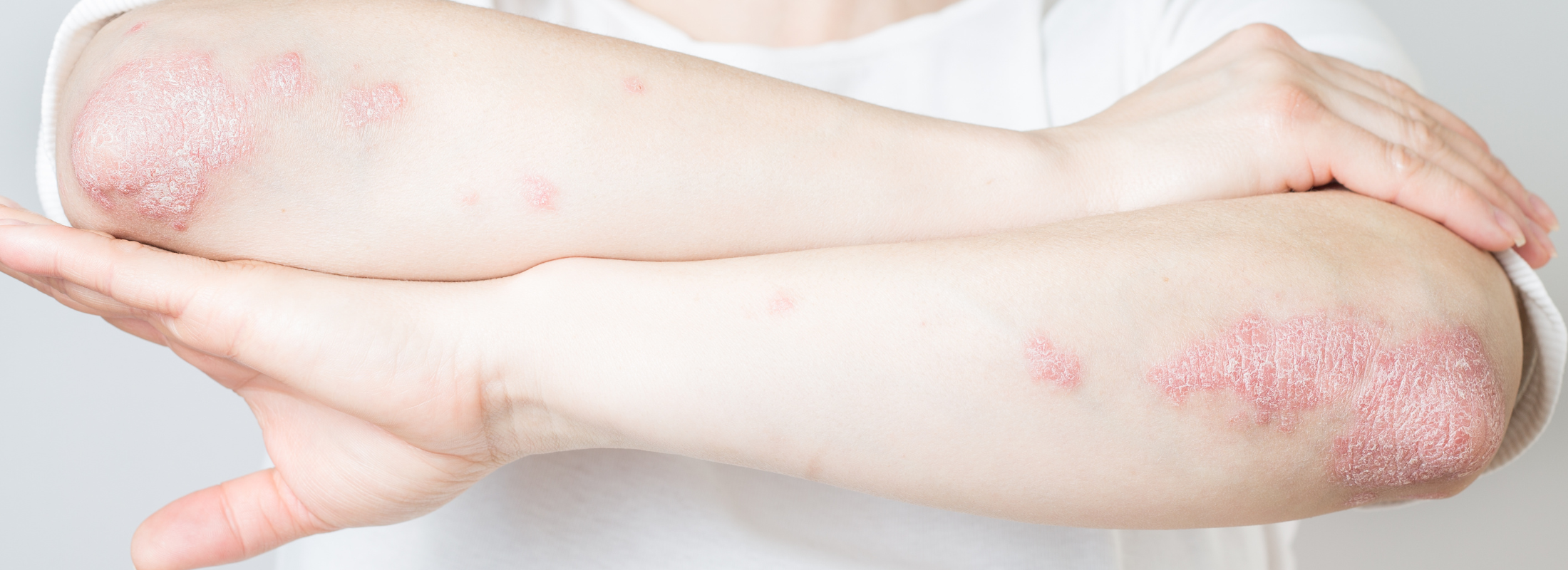Our dedicated team is here to provide valuable insights into psoriasis, a common skin condition that affects millions worldwide. Explore the information below to better understand psoriasis and learn how we can assist you on your journey to healthier skin.
What is Psoriasis?
Psoriasis is a chronic autoimmune condition that primarily affects the skin, leading to the development of red, inflamed patches covered with silvery scales. This condition occurs when the immune system mistakenly attacks healthy skin cells, causing an accelerated turnover of skin cells. At our Urgent Care Center, we recognize the impact psoriasis can have on your daily life.
Key Characteristics:
- Red, Inflamed Patches: Psoriasis commonly manifests as raised, red patches on the skin. These patches, known as plaques, are often well-defined and can be itchy or painful.
- Silvery Scales: Overlying the red patches, psoriasis plaques are covered with silvery or whitish scales. These scales result from the rapid production of skin cells that accumulate on the surface.
- Itching or Burning Sensation: Psoriasis can be associated with itching or a burning sensation. The degree of discomfort varies from person to person and can impact daily activities.
- Dry and Cracked Skin: The affected skin may become dry and prone to cracking. This can be especially problematic in areas with repeated movement, such as joints.
- Thickened, Pitted Nails: In some cases, psoriasis can affect the nails, leading to changes such as thickening, pitting (small dents or craters), or separation from the nail bed.
Types of Psoriasis:
Psoriasis presents in various forms, and understanding the specific type is crucial for effective management. Common types include:
- Plaque Psoriasis: The most prevalent form characterized by raised, red plaques with silvery scales.
- Guttate Psoriasis: Small, dot-like lesions often triggered by bacterial infections.
- Inverse Psoriasis: Affecting skin folds, such as underarms and groin, causing smooth, red patches.
- Pustular Psoriasis: Characterized by pus-filled blisters and red skin, often on the hands and feet.
- Erythrodermic Psoriasis: Rare but severe, leading to widespread redness and scaling of the skin.
Understanding the specific type of psoriasis is essential for tailoring an effective treatment plan. At our Urgent Care Center, our experienced healthcare professionals provide compassionate care and prompt diagnosis, and will work diligently to provide the best treatment options available.
Treatment Options:
Effective psoriasis management often involves a tailored approach. Treatments may include:
- Topical medications such as corticosteroids
- Phototherapy (light therapy)
- Oral, infused or injected medications
- Lifestyle and stress management guidance


